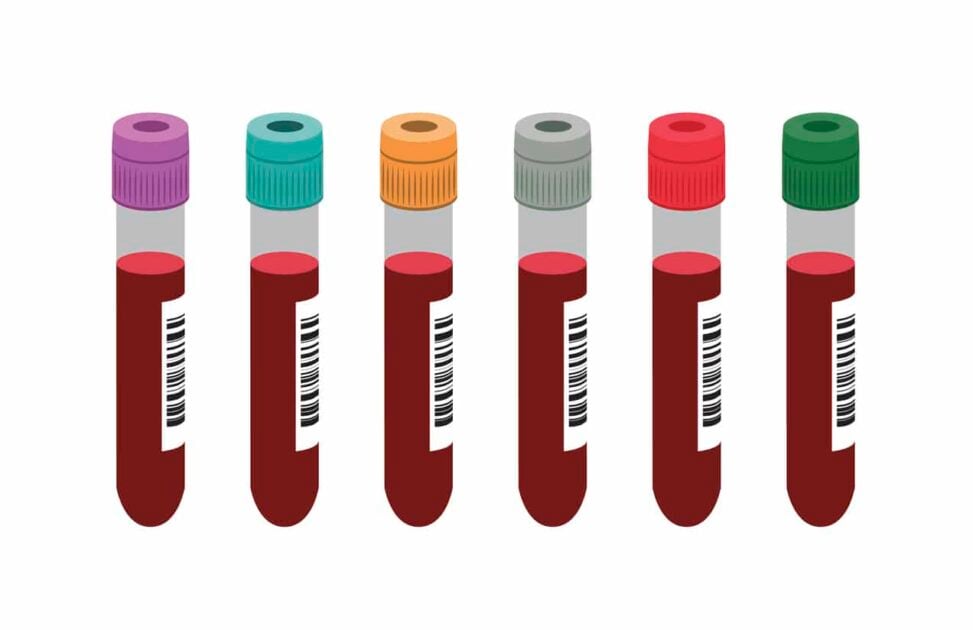Hepatitis B: symptoms, treatment and prevention
You can find out if you have hepatitis b from a blood test

Hepatitis B is a viral infection that infects the liver. Hepatitis B is a major cause of serious liver diseases such as cirrhosis and liver cancer and affects millions of people worldwide. In most people, a full course of vaccination prevents infection.
How do you get hepatitis B?
Hepatitis B can be passed on through:
- Unprotected vaginal, anal, oral sex and rimming (mouth to anus contact)
- Sharing needles
- Parent to child during pregnancy or delivery
- Sharing toothbrushes, razors or towels contaminated with infected blood
What are the symptoms of hepatitis B?
Many people with hepatitis B have no symptoms, many do not even realise that they are infected and most people who are infected have no symptoms for many years.
Some people may have symptoms when they first become infected, which can last for several weeks.
These may include:
- Flu-like symptoms
- Feeling sick or vomiting
- Diarrhoea
- Loss of appetite
- Yellowing of the skin and eyes (jaundice)
- Dark urine (pee)
- Pale faeces (poo)
- Itchy skin
In a small number of people, the initial infection can be severe and they can develop liver failure, which can lead to death, but this is rare.
How can I be tested for hepatitis B?
Hepatitis B is diagnosed by a blood test. If you go for an STI check-up you can ask about being tested for hepatitis B. The doctor or nurse will ask for certain tests depending on your circumstances and explain what the results mean for you.
How can I prevent myself from getting hepatitis B?
There are vaccines that prevent infection with hepatitis B. It can also be prevented by using condoms and not sharing needles. Speak to your sexual health nurse or doctor about whether or not getting the vaccine against hepatitis B is right for you.
Who should be vaccinated against hepatitis B?
It is recommended that the following people should consider vaccination:
- Gay, bi and men who have sex with men
- People who inject drugs
- Partners and everyone who lives with someone who has hepatitis B
- Anyone diagnosed with an STI
- Sex workers
- Anyone who has paid for sex
- Anyone who has been sexually assaulted
Can hepatitis B be treated?
Yes, hepatitis B can be treated. If you are diagnosed with hepatitis B, you will need to see a doctor who specialises in the treatment and management of the infection. There are different stages of hepatitis B infection. Some stages need treatment and some do not need treatment but need to be checked regularly.
If you have hepatitis B, the stages of infection, treatments and check-ups will all be explained to you by the doctor or nurse who sees you.
What about my partner?
The chance of passing hepatitis B on to people you have sex with depends on the stage of infection.
The people you have sex with and the people who live with you may be at risk of getting the infection from you and will need to be tested and offered vaccination. If you have hepatitis B, this will be explained to you by the doctor or nurse who sees you at your STI check-up. Read our article on telling your partner you have an STI for advice on having that conversation.
When can I have sex again?
This will depend on the stage of your hepatitis B infection. It is recommended that your partner or any new partners should be tested and vaccinated against hepatitis B before having sex with them. You can ask for more advice on this at your sexual health check-up
What happens if hepatitis B is left untreated?
Some people will naturally clear the virus. For many, the infection will remain and, without treatment, the virus can lead to long-term damage to their health, such as liver disease (cirrhosis) or liver cancer.
Hepatitis B in pregnancy
Screening of pregnant people for hepatitis B is a routine part of care in pregnancy and is done during the first antenatal visit. If you are found to have hepatitis B, you will be referred to a specialist. It is important that you receive the necessary medical care during pregnancy, to make sure that your baby does not catch the infection. The baby will need to be vaccinated against hepatitis B when they are born and may need some other treatment. Your doctor or obstetrician can discuss this with you if you have any concerns.
Looking after your mental health after an STI diagnosis
If you are diagnosed with an STI, you might feel a mixture of emotions. Unfortunately, there is still stigma in our society surrounding STIs that can cause some people to feel shame about having one. However, like any other healthcare diagnosis, you are not to blame for your STI and have not done anything “wrong”. Being diagnosed with an STI can have a negative impact on your mental health and wellbeing and if you don’t feel comfortable telling friends or family about it, you might feel isolated and alone. If you have found out you have an STI and you’re finding it difficult to cope, there are things you can do to support your mental health.
- Remember that STIs are common and lots of people have one at some point in their life, even though they aren’t talked about a lot
- Take time out to do something you enjoy and practice self-care
- Reach out for mental health support if you need it. If you don’t feel comfortable talking to a friend or family member, our 24/7 anonymous text service, 50808, can help
- Be patient with yourself and allow yourself to feel your emotions. It’s ok to be upset when you find out you need healthcare treatment. It’s important to take the time you need to adjust
Feeling overwhelmed and want to talk to someone?
- Get anonymous support 24/7 with our text message support service
- Connect with a trained volunteer who will listen to you, and help you to move forward feeling better
- Whatsapp us now or free-text SPUNOUT to 50808 to begin.
- Find out more about our text message support service
If you are a customer of the 48 or An Post network or cannot get through using the ‘50808’ short code please text HELLO to 086 1800 280 (standard message rates may apply). Some smaller networks do not support short codes like ‘50808’.





